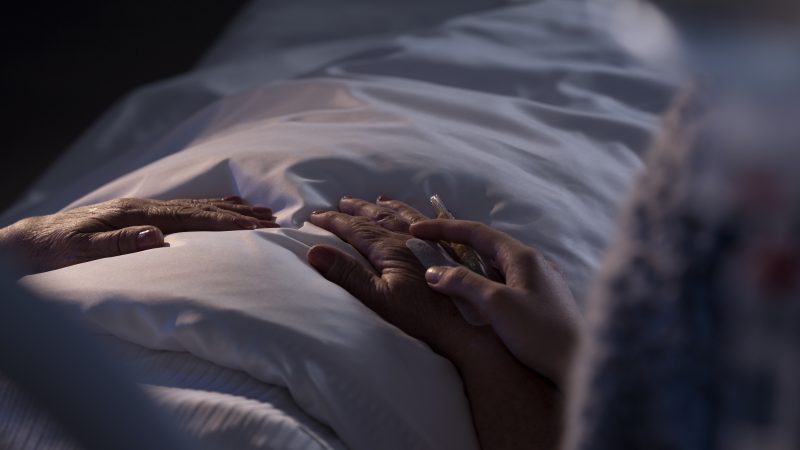
Those of us who have been in Parliament for some time now are used to hearing that we are facing an ‘historic vote’ or a ‘momentous decision’. There is often more than a little touch of hyperbole about our proceedings, but there are times when the language does befit the occasion. This is one of those times.
Not only the media, but a large number of our constituents will be watching on Friday as the Terminally Ill Adults (End of Life) Bill comes up for its Third Reading. We showed the best of Parliament back in November at the Second Reading debate and we must endeavour to do so again this week.
Rarely has any Bill, never mind a Private Members’ Bill, received so much scrutiny and detailed attention both at Westminster and in the country. Rightly so. It is a serious and weighty decision that we must make. But that is what our constituents send us here to do. To decide.
It’s a privilege to be entrusted with such a duty, but understandably it can feel like a heavy responsibility to bear. For newer members, unused to being asked to vote on an issue of such gravity, that responsibility has come early in their parliamentary careers and must feel particularly challenging. But it is a credit to all colleagues that so much time and thought has been given to the subject.
READ MORE: Assisted dying vote tracker – how will Labour MPs vote at third reading?
‘The vote this week will be something the class of 2025 will be remembered for’
In truth, the question of whether a person wishing to end their own life at a time of their choosing, rather than face a potentially painful and undignified end, has been before Parliament in one form or another for many decades. The first such measure was proposed as long ago as 1936! In recent years, there have been debates in both Houses and a lengthy Select Committee enquiry. And, of course, it has been deliberated upon many times in the media and elsewhere.
So the opportunity to finally come to a decision on Friday is a privilege and one that we should embrace on behalf of our constituents who have, by consistent and very large margins, expressed their support for assisted dying over many years. It is reasonable to assume that when historians look back on this parliament, the vote this week will indeed be seen as ‘historic’ and something for which we, the class of 2025, will be remembered.
READ MORE: ‘I support assisted dying, but safeguards in Leadbeater’s bill aren’t strong enough’
‘Not to vote for the bill is to decide the status quo with its injustices is acceptable’
We were sent here to legislate and to legislate is to decide. We should have the courage to do that and to get it right. But not to legislate is also a decision. Not to vote for Kim Leadbeater’s Bill is to decide that the status quo, with its manifest injustices, inherent cruelty and total absence of safeguards against coercion, is acceptable and preferable to a well-designed, rigorous and heavily safeguarded reform.
It is sometimes described as a vote about ‘life or death’. In fact it is about ‘death or death’. The only people who would be offered the opportunity to choose would already be dying, and expected to do so in a few short months. They are not suicidal. They don’t want to die. But that choice is no longer available to them.
What this Bill would do is allow them to die having said their goodbyes and surrounded by those they love. They would be spared the pain and indignity of a ‘bad’ death, and would know that their loved ones’ last memories of them would be as positive as possible given the inevitable sadness we all know comes with the loss of someone we care for.
Subscribe here to our daily newsletter roundup of all things Labour – and follow us on Bluesky, WhatsApp, Threads, X or Facebook.
‘The bill is one of which Parliament can be proud – its time has come’
The Bill before us for decision on Friday is one of which Parliament can be proud. Its time has come. We are seeing legislatures across the world move steadily in the same direction.
If we fail to pass it this week it is highly likely that it would be for a future Parliament to return to the issue. How many people who we could have helped would have died by then? How many spouses or partners would have faced the threat of a police investigation while still dealing with the trauma of losing someone before they were ready?
That is the responsibility we will carry with us into the division lobbies. And it’s one that we, as Labour MPs who reject injustice and stand for compassion and human dignity, should be proud to embrace.
- SHARE: If you have anything to share that we should be looking into or publishing about this story – or any other topic involving Labour– contact us (strictly anonymously if you wish) at [email protected].
- SUBSCRIBE: Sign up to LabourList’s morning email here for the best briefing on everything Labour, every weekday morning.
- DONATE: If you value our work, please chip in a few pounds a week and become one of our supporters, helping sustain and expand our coverage.
- PARTNER: If you or your organisation might be interested in partnering with us on sponsored events or projects, email [email protected].
- ADVERTISE: If your organisation would like to advertise or run sponsored pieces on LabourList‘s daily newsletter or website, contact our exclusive ad partners Total Politics at [email protected].




More from LabourList
Almost half of Labour members oppose plans to restrict jury trials, poll finds
‘How Labour can finally fix Britain’s 5G problem’
‘The University of the Air – celebrating 60 years of Harold Wilson and Jennie Lee’s vision’